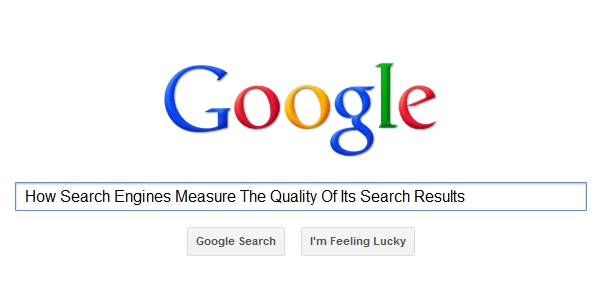Search engine developers constantly ponder ways in which SERPs (search engine results pages) might present only high-quality content to users. But can quality be accurately measured? More to the point, are search engines capable of subjectively analyzing search results using objective algorithms and how does Google tackle the problem?
Cost
The answer to the first question is largely dependent on cost. Analysing the quality of website content costs money and the more a website is analysed the greater the cost, which is why search engines tend to skim the surface and predict the rest. This technique is flawed for the obvious reason that surface-level analyses are unable to guarantee accurate results – they are simply not a reliable measure of quality.
The issue of cost was explored by Lawrence Wai, who invented a patent for Yahoo! called ‘System and method for development of search success metrics’. While discussing the various problems faced by search engines when they attempt to sort content or search results in order of quality, Wai said, “It is also generally true that the higher a class is ranked, the greater the cost of obtaining the metric”. In other words, producing more reliable results requires search engines to spend more money on qualitative analyses.
Measuring Search Results
If cost is a barrier to accuracy, search engines such as Google and Bing are faced with the prospect of designing more intelligent systems to evaluate the quality of search results. Automated systems are complex, powerful and effective, but all lack the subjective reasoning power of the human mind. Unless search results are monitored and assessed by real people – a task too gargantuan and intrinsically flawed to be realistically entertained – web users must rely on algorithms to display the most appropriate, high-quality results for search terms.
An SEO company requires an understanding of how algorithms approve and reject content if it is to provide clients with reliable advice, but not even the most reputable SEO company knows for certain how the search engines classify SERPs according to quality. Another question that prompts speculation among SEO specialists concerns the extent to which a search engine’s qualitative analysis of search results mirrors its qualitative analysis of website content. Are they two sides of the same coin or do they function on completely different methodologies? An insight can be gained by reviewing patents filed by Yahoo! and Google.
The system invented by Wai aims to establish a “search success” ranking for SERPs based on “page success metrics” and other important criteria. Wai’s method employs various techniques, including presentation, query reformulation, advertising, ranking, SRP enhancements and diversity. Critically, the system admits that there is no useful or reliable way to “evaluate the user’s perceptions of search page results”.
Assessments of quality, therefore, cannot escape the objective framework of search-engine algorithms. Search engines cannot man-manage queries and users cannot be relied on to rank SERPs for reasons of bias and fraud. Yahoo’s patent also describes the analysis of click-through-rate metrics to further improve search results – a technique that is hardly invulnerable to deception or misreporting.
Google is thought to have introduced a similar system with the recent Panda update, relying on a specific range of search metrics to objectively analyse results. The system is by no means perfect, of course, but it does represent the cutting edge of search-engine technology. Until systems are capable of adopting a subjective, human-like approach to evaluating search results, users will have to make do with a series of complex metrics that are picked apart and pieced together to estimate quality.
___________________________________________________________________
Thank you to my Guest Post Author: Britney Danila
The above article is composed and edited by Britney Danila from SEO Positive, an SEO Company in UK.
___________________________________________________________________


CommentLuv vs Disqus – Why I Don’t Use CommentLuv!